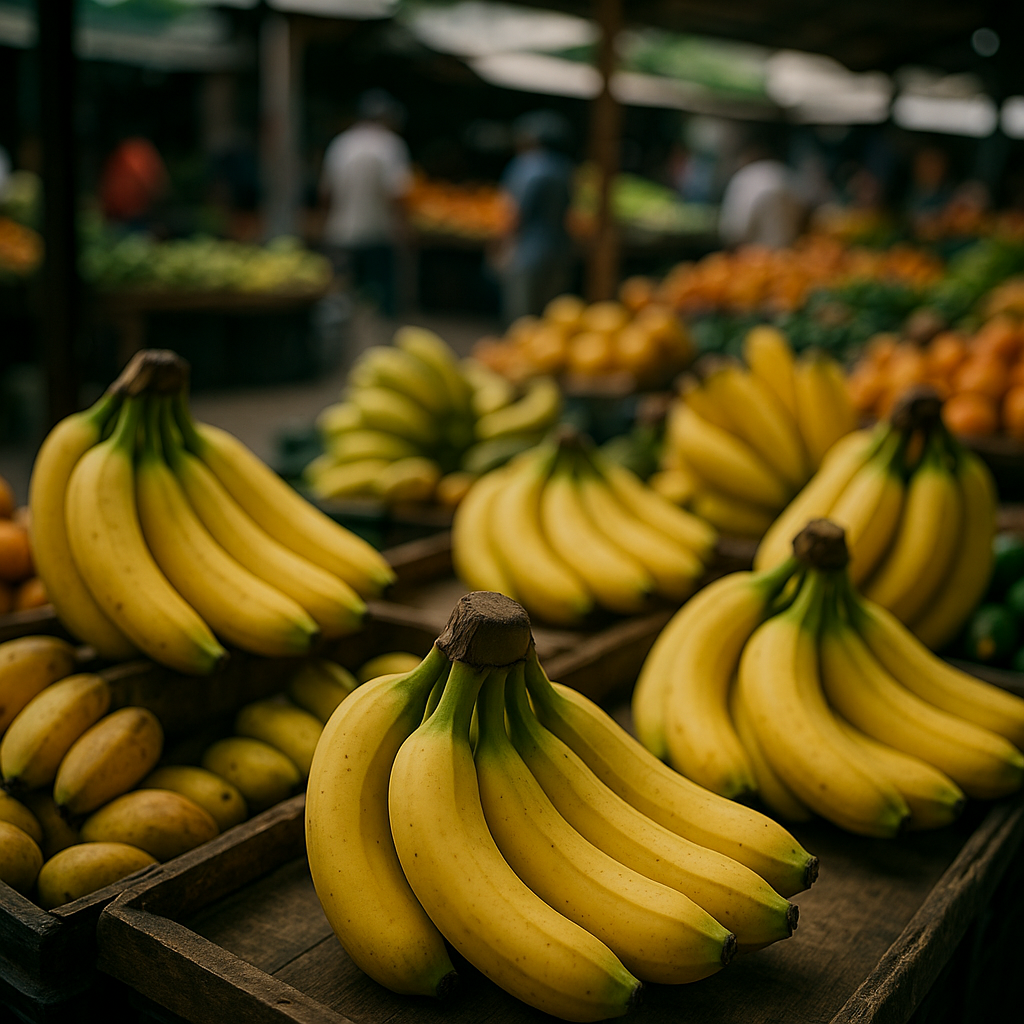SA Refutes Claims of Banana Import Ban Amidst Trade Talks with Tanzania
In a clarifying statement issued this week, the department affirmed that no such ban exists and highlighted ongoing positive trade negotiations between the two nations.

- Country:
- South Africa
The South African Department of Agriculture, Land Reform and Rural Development has firmly rejected widespread speculation surrounding an alleged ban on the import of bananas from Tanzania into South Africa. In a clarifying statement issued this week, the department affirmed that no such ban exists and highlighted ongoing positive trade negotiations between the two nations.
The media frenzy began following reports suggesting that Tanzanian officials were contemplating a retaliatory ban on agricultural imports from South Africa. These reports stemmed from misinformed claims that South Africa does not allow Tanzanian banana imports. However, the Department of Agriculture has now come forward to set the record straight, reinforcing the mutual respect and collaboration that underpin the agricultural trade relationship between South Africa and Tanzania.
No Ban Ever Imposed
According to the department, South Africa has never instituted a ban on banana imports from Tanzania. Instead, the two countries are currently engaged in a standard scientific process aimed at assessing the phytosanitary feasibility of such imports. The National Plant Protection Organisation of South Africa (NPPOZA), a regulatory authority under the department, has been actively working with its Tanzanian counterpart to establish safe and regulated trade protocols for various plant products, including bananas.
A spokesperson from the department noted, “We have a strong and cooperative relationship with Tanzania when it comes to agriculture. At no point has there been a formal denial or acceptance of market access for Tanzanian bananas; the process is still underway.”
Avocados as a Case Study in Cooperation
South Africa and Tanzania already enjoy successful agricultural trade in other produce. For example, Tanzanian avocados have been imported into South Africa for the past four years. These imports serve a strategic purpose by filling seasonal supply gaps in the local market, showcasing the benefits of cross-border agricultural cooperation.
The current efforts to gain market access for bananas mirror the framework that supported the avocado trade. Both countries are focused on aligning trade practices with international standards and safeguarding agricultural health.
Scientific Process Underway
In February 2025, the South African Department of Agriculture received an official request from Tanzanian authorities for market access to export bananas. This triggered the initiation of a Pest Risk Analysis (PRA), a critical process governed by scientific assessments and international phytosanitary standards.
The PRA process is conducted by NPPOZA and is necessary to determine whether Tanzanian bananas can be safely imported without introducing harmful pests or diseases to South African agriculture. The process is aligned with global standards set by the International Plant Protection Convention (IPPC), and any decisions are made strictly based on scientific evidence.
“The PRA ensures that our biosecurity is not compromised while also opening doors for safe trade. This approach supports both environmental safety and economic cooperation,” the department emphasized.
Biosecurity a Top Priority
The department stressed the importance of maintaining biosecurity through rigorous phytosanitary controls. It cited the global threat of Fusarium oxysporum f. sp. cubense Tropical Race 4 (TR4), a highly destructive banana disease that has devastated banana crops worldwide. Ensuring such diseases do not enter South Africa is a priority for the department.
The draft phytosanitary import conditions will be shared with Tanzanian authorities upon completion of the PRA. Only after both governments approve the terms will actual banana imports commence.
No Retaliation, No Misunderstanding
Crucially, the department reiterated that there has been no formal market access approval or denial—meaning no importation has been permitted yet, but equally, no ban has ever been enforced. Additionally, South Africa has not received any official communication from Tanzania regarding any restriction or ban on South African exports.
International trade laws, including those under the World Trade Organisation (WTO) and IPPC, require that all bans or the lifting of bans be communicated officially between trading partners. The department confirmed that no such notifications have been exchanged.
Looking Ahead
The department concluded its statement by encouraging a calm and rational approach to agricultural trade discourse, one that respects international procedures and prioritizes long-term cooperation.
“Both countries stand to benefit from well-regulated and scientifically grounded trade agreements. We remain committed to working transparently and collaboratively with our Tanzanian counterparts,” the statement concluded.
This development underlines not just the intricacies of international agricultural trade but also the importance of preventing misinformation from derailing productive bilateral relationships.










